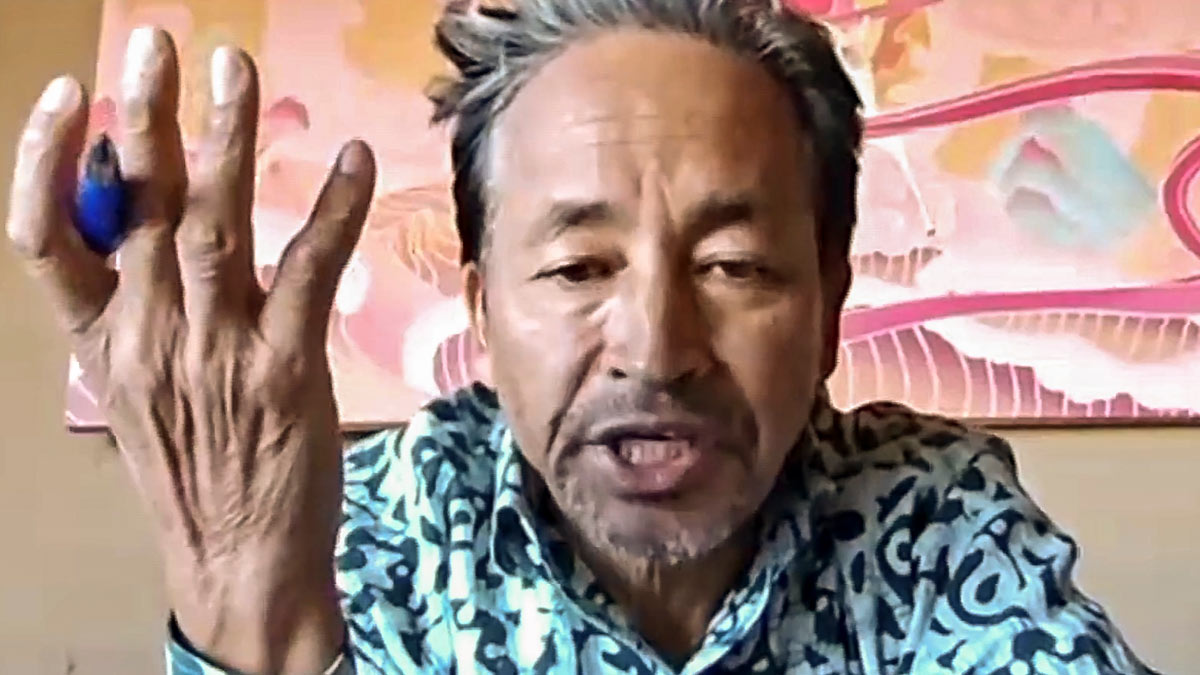Supreme Court opens door for wider challenge to Sonam Wangchuk’s detention under NSA

The Supreme Court, on Wednesday, permitted Gitanjali J. Angmo, wife of climate activist Sonam Wangchuk, to amend her petition challenging his detention under the National Security Act (NSA) and introduce additional grounds against it. The court took the revised plea on record and directed the Union government and the Union territory of Ladakh administration to respond within 10 days.
A Bench of Justices Aravind Kumar and N.V. Anjaria allowed the amendment and listed the matter for further hearing on November 24. The petitioner, represented by Senior Advocate Kapil Sibal, has been allowed a week to file the updated petition, while the respondents have 10 days to reply. Any rejoinder may be filed within a week thereafter.
Wangchuk, a noted educator and environmentalist from Ladakh, was detained on September 26 under the NSA following violent protests in Leh that demanded statehood and inclusion under the Sixth Schedule of the Constitution. Authorities alleged his involvement in inciting the unrest.
In her amended plea, Angmo challenges both the procedure and the substance of the detention. She contends that several of the five FIRs cited in the detention order do not name her husband, nor do they establish any direct link to the September violence. Three of those FIRs, she says, were registered in 2024 against unknown persons.
Angmo further argues that recent actions against Wangchuk and his NGO, including cancellation of FCRA registration, land-lease notices, CBI investigations, and Income Tax summons, indicate a pattern of targeted harassment, not a genuine national security concern.
“It is wholly preposterous that after over three decades of being recognised at the state, national, and international levels for his contributions to grassroots education, innovation, and environmental conservation, Mr. Sonam Wangchuk would suddenly be targeted,” the amended plea states.
“Merely two months before the elections and the final rounds of dialogue between ABL, KDA, and the ministry of home affairs, he was served with notices for land lease cancellation, FCRA cancellation, initiation of a CBI investigation, and summons from the Income Tax Department.”
The petition underscores Wangchuk’s long-standing contributions to sustainable innovation, including solar-heated shelters for the armed forces in high-altitude terrain, and argues that it is implausible to label him a threat to national security.
Angmo describes the detention as a manifestation of political vendetta against a reformer who has consistently raised ecological and governance concerns in Ladakh. She also claims that Wangchuk’s remarks referencing uprisings in Nepal, Bangladesh, and Sri Lanka were selectively misinterpreted, either due to a misunderstanding of context or deliberate distortion.
“The allegation that Mr. Sonam Wangchuk has been regularly bragging about his foreign connections and threatening to use such connections against the government is wholly unsubstantiated, incorrect, and without any material on record,” the plea adds.
In support of her argument, Angmo notes that during a conference in Pakistan, Wangchuk had, in fact, praised Prime Minister Narendra Modi’s environmental policies, contradicting claims that he harboured any hostile intent.
The Centre and Ladakh administration, however, have maintained that the detention followed due process under the NSA. They contend that Wangchuk was duly informed of the grounds for his detention, granted legal access, and that the order aligns with preventive detention provisions invoked when actions are deemed prejudicial to national security.
With the amended petition now admitted, the Supreme Court’s next hearing is expected to examine not just the technical validity of the detention order, but also the timing and rationale behind it. The outcome is likely to carry wider implications for the use of preventive detention laws in contexts involving regional activism and demands for constitutional safeguards in Ladakh.
India